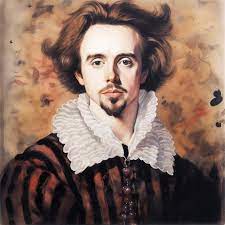Maulana Abul Kalam Azad was a multifaceted personality who served as a prominent figure in India’s fight for independence and its subsequent development. Renowned for his scholarship, political activism, and unwavering commitment to national unity, Azad remains an inspiration to many even today. Let’s explore his remarkable life and legacy:
Maulana Abul Kalam Azad Biography
Born: November 11, 1888, Mecca (Ottoman Empire, now Saudi Arabia) Died: February 22, 1958, New Delhi, India Occupation: Scholar, Journalist, Politician, Educator Political Affiliation: Indian National Congress
Maulana Abul Kalam Azad Nationality & Age
Azad was born into a Bengali Muslim family, though his birthplace was Mecca. He lived most of his life in British India and became a key figure in its independence movement. Sadly, he passed away at the age of 69 in New Delhi, independent India.
Maulana Abul Kalam Azad Education and Schooling
Azad received a deep and diverse education. He started with traditional Islamic studies at home, mastering Arabic, Persian, and Urdu. Later, he broadened his horizons by studying philosophy, geometry, mathematics, and even English through self-study. He also briefly attended Egypt’s prestigious Al-Azhar University.
Maulana Abul Kalam Azad Relationship and Personal Life
Azad remained unmarried throughout his life, dedicating himself fully to his scholarly pursuits and the struggle for India’s freedom. He had several close friends and fellow activists, including Mahatma Gandhi and Jawaharlal Nehru.
Maulana Abul Kalam Azad Career Beginnings
Azad’s brilliance started manifesting early. By his teens, he was already writing and publishing poetry and articles, often under the pen name “Azad,” which eventually became his defining identity. He later launched influential journals like “Al-Hilal” and “Al-Balagh,” using them to voice his criticism of British rule and inspire nationalist sentiments.
Maulana Abul Kalam Azad Career and Contributions
Azad’s career spanned different spheres, each marked by his exceptional qualities.
- Journalist and Scholar: He used his writing to articulate his ideas and advocate for social and political change. He also authored several books and commentaries on religious and philosophical subjects.
- Freedom Fighter: Azad actively participated in India’s independence movement, leading the Khilafat Movement and supporting Gandhi’s non-violent campaigns. He firmly believed in Hindu-Muslim unity as a pillar of a free India.
- Minister of Education: After independence, Azad became the first Education Minister of India. He played a crucial role in shaping the nation’s educational system, emphasizing universal access, cultural inclusivity, and scientific progress.
Maulana Abul Kalam Azad Achievements and Awards
- Leader of the Khilafat Movement and prominent figure in India’s independence struggle.
- First Education Minister of independent India, laying the foundation for its modern educational system.
- Author of several acclaimed books and scholarly works.
- Recipient of India’s highest civilian award, the Bharat Ratna, in 1998 (posthumously).
Maulana Abul Kalam Azad Conclusion and Legacy
Maulana Abul Kalam Azad’s life and work continue to inspire generations. He championed intellectual freedom, religious tolerance, and national unity, leaving an indelible mark on India’s history. His contribution to education laid the groundwork for a future where knowledge could empower all citizens. Even today, his legacy serves as a reminder of the transformative power of education, critical thinking, and unwavering commitment to a just and equitable society.



